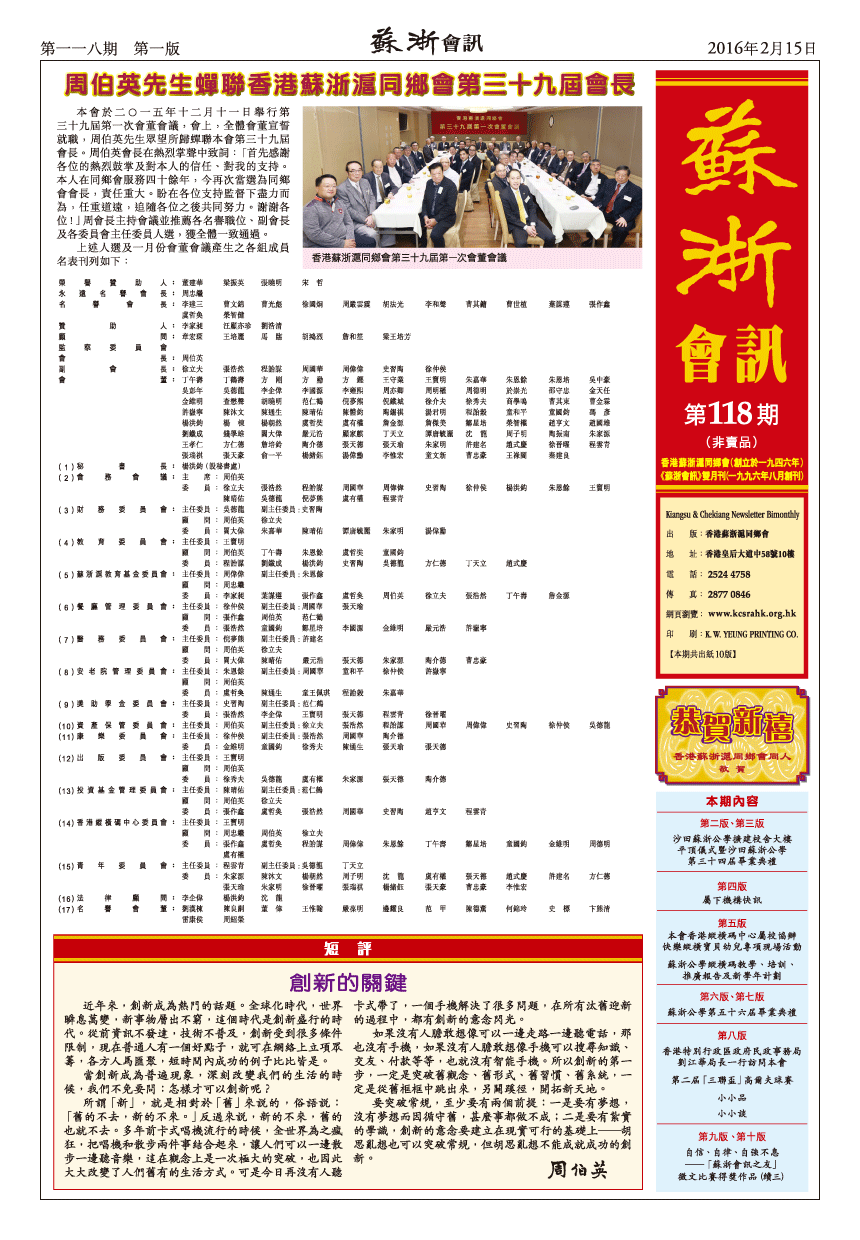
"Shanghainese is magical, isn't it?" quoted Chik (2010). Shanghainese is a dialect to bring back history and family memories, despite the fact that not all generations can speak Shanghainese in Hong Kong. With the onset of the Second Sino-Japanese War in 1937, there were floods of emigration of Shanghainese people. An estimated 1.4 million people from Shanghai fled to Hong Kong as capitalist exodus, seeing the threat of Communist takeover in the 1950s (Burton, 1999). Shanghainese has long been accredited for Hong Kong's transformation from small trading outpost into a manufacturing powerhouse. Some Shanghainese immigrants were even industrialists who transferred capital and human resources to Hong Kong (Sit, 1998). They have played significant roles in commercial and financial links between the Mainland China and Hong Kong. Shanghainese textile tycoons, bankers and shipping magnates endowed Hong Kong as their adopted community with expertise, technology and capital, including Tung Chao-yung, father of Tung Chee-hwa, who became post-colonial Hong Kong's first Chief Executive in 1997.
Seeing the Shanghainese heritage, yet, there is question whether the vitality of Shanghainese can be sustainable in Hong Kong. For their next generation(s), they grow up in social networks of ancestral Shanghainese speakers, but they mostly use Cantonese at home and presumably also learn English at schools. As shown in the figures below, the percentage of having Shanghainese as the "usual language" declined more than two-folds from 1960s to only 0.7% in 1990s. Further having a look at figure 3, Shanghainese experienced the largest decrease in the reported mother tongue from 1980s to 2000s. It is not an exaggeration that Chik (2010) once contended that Shanghainese is her parents' language, but not hers.

Figure 2 Percentages of speakers of "usual language" classified by census result (Bacon-Shone & Bolton, 1998)

Figure 3 Reported "mother tongue" from 1983 to 2003 (Bacon-Shone & Bolton, 2008)
Institutional support refers to the degree that a language is used in various institutions, such as government, schools and media. Educational emphasis is long on biliteracy and trilingualism as Evans (2013) suggested, even though they are not stressed in a balanced sense. Minority languages and dialects are very often neglected without government support in Hong Kong. Government policies on only local cultural heritage and the establishment of the Culture and Heritage Commission promote merely Lingnan culture and Cantonese-related activities. It is no wonder that descendants with Shanghainese origin seldom master their ancestral language.
The status variable lastly is about the prestige of the target linguistic group, consisting of economic, social, socio-historical and language status (Yagmur & Ehala, 2011). The status of Shanghainese may not be officially recognized by the government, but fraternity associations, tongxianghui (同鄉會), unite people from the same ancestor. Shanghai Fraternity Association (figure 4), for instance, illustrates how Shanghainese can have interactions and thrive with gatherings where most of them like to have some traditional Shanghainese cuisine. There is also Kiangsu Chekiang and Shanghai Residents (Hong Kong) Association (figures 5 and 6) which gathers all Shanghainese in Hong Kong, and represents for the their community and their neighborhood, Kiangsu. Last but not least, Shanghai Opera Association Hong Kong (figures 7 and 8), as a cultural association, helps promote Shanghainese opera. Apart from collaborating with Shanghainese cultural organizations which come to Hong Kong, Shanghai Opera Association Hong Kong also organizes regular cultural events for Hong Kong residents as well as Shanghainese who reside in Hong Kong.
Figure 4 Information of Shanghai Fraternity Association (http://www.openrice.com/en/hongkong/restaurant/central-shanghai-fraternity-association/26834)
Figure 5 Kiangsu Chekiang and Shanghai Residents (Hong Kong) Association (http://kcsrahk.org.hk)

Figure 6 Bimonthly newsletter (118th issue, published on February 15, 2016) from the Kiangsu Chekiang and Shanghai Residents (Hong Kong) Association

Figure 7 Previous events of Shanghai Opera Association Hong Kong in 2014 and 2015

Figure 8 Previous original events of Shanghai Opera Association Hong Kong and events with collaboration with Shanghainese cultural organizations in 2012, 2014 and 2015
In retrospect, purely based on the demographic statistics, education and government policies, and social motivations to learn Shanghainese, the vitality of Shanghainese in Hong Kong has been concluded to experience a dramatic decline, despite the three mentioned clan associations in Hong Kong. This is not a surefire statement until further researches are conducted to investigate whether the limited roles and functions, as well as language attitudes and the vitality itself, contribute to its declining status. Still, the Shanghainese heritage in fact can be magical, both in terms of linguistic and social aspects. It links to the ancestral home, even if most of the descendants in Hong Kong are not able to speak Shanghainese well. It is challenging to learn and take the Shanghainese accent at once, but it would be fantastic to see a head start for recognizing the Shanghainese culture in Hong Kong.


